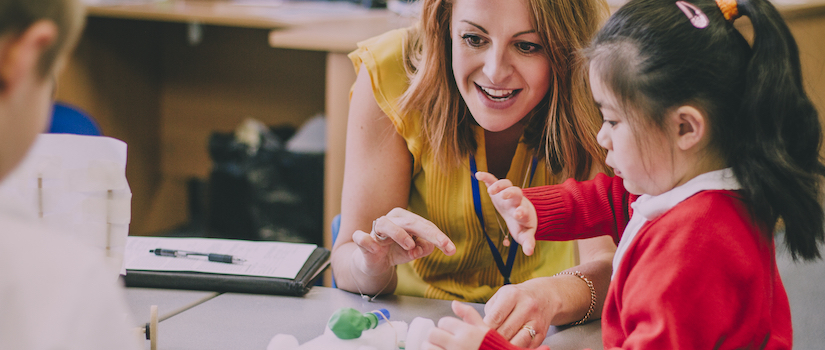Articles & Videos
Enhancing your students' critical thinking skills
Categories
Subscribe to our newsletters
Receive teaching resources and tips, exclusive special offers, useful product information and more!
Back to Planning articles & videos
Enhancing your students' critical thinking skills
Maths Trek 17/8/23

Critical thinking helps students transform their understanding of everyday maths concepts into something meaningful and useful. But how can we incorporate critical thinking into our maths classrooms? And how can we improve our students’ critical thinking skills?
Engage students in rich tasks
Rich tasks provide students with opportunities to extend their thinking and learning within real-world contexts that are both engaging and challenging. With the right content links, rich tasks can consolidate students’ learning and create meaningful learning experiences.
Rich tasks require students to use a range of critical thinking skills such as:
- identifying problems
- gathering and synthesising information
- transferring current knowledge to unfamiliar contexts
- considering alternatives
- finding solutions
- drawing conclusions
- evaluating or reflecting on outcomes
- communicating results.
When choosing a rich task, look for one with a low floor and high ceiling so all students can be engaged and motivated to explore the task. Be prepared to scaffold or extend the task when required to ensure all students are challenged.
In our new primary maths program, Maths Trek, we have included plenty of rich investigations throughout the year to enhance your students’ critical thinking skills.
Note: Maths Trek’s investigations and problem-solving lessons cover the four elements of the Critical and Creative Thinking General Capability in the F–10 Australian Curriculum for Mathematics Version 9.0.
Make time for discussion
Discussion is a simple yet powerful tool to enhance critical thinking in your classroom. When students talk about their thinking and challenge ideas, they are using critical thinking to synthesise and evaluate information and reflect on their own learning. When they think about their thinking, students are developing the important skill of metacognition.
Discussion provides an excellent opportunity to check in with students, assess for understanding and collect valuable information for reporting. It is important to ensure discussion questions are focused, clearly connected to the topic and challenge students to think and reason. Use scaffolded thinking prompts to guide students through the thinking process during class discussion.
We recommend conferencing with students throughout our Maths Trek investigations. Embedded within each investigation, you’ll find discussion questions and scaffolded thinking prompts designed to guide and support meaningful discussion.
Explicitly teach cognitive verbs
The umbrella of critical thinking encompasses a wide variety of knowledge, skills and processes, one of which is the ability to understand and use cognitive verbs.
The good news is cognitive verbs, such as evaluate, explain, and prove, can be explicitly taught. By providing student-friendly definitions, guided thinking prompts and relatable examples, we can help students to learn and practise the step-by-step process to apply each cognitive verb in a range of contexts. When students grasp cognitive verbs, they become more efficient in their mental processes and understand different ways of thinking.
To support the explicit teaching of cognitive verbs in primary maths classrooms, every Maths Trek investigation from Year 1 to Year 6 includes explicit cognitive verb mini-lessons. These lessons help students to understand and use cognitive verbs to guide and support their thinking.
Provide opportunities for problem-solving
Discrete problem-solving tasks provide short sharp opportunities for students to develop their critical thinking skills. Problem-solving challenges students to synthesise their mathematical knowledge and apply it in a meaningful way.
When problem-solving, students use a range of critical thinking skills such as:
- interpreting and analysing the problem
- selecting and applying suitable strategies to solve the problem
- considering and comparing alternative strategies
- evaluating their solution and explaining their reasoning.
Maths Trek is packed full of problem-solving lessons – where strategies are explicitly taught and modelled – as well as plenty of opportunities for independent problem-solving practice. Every problem-solving practice task includes critical thinking prompts that encourage students to articulate their chosen strategy and extend their thinking.